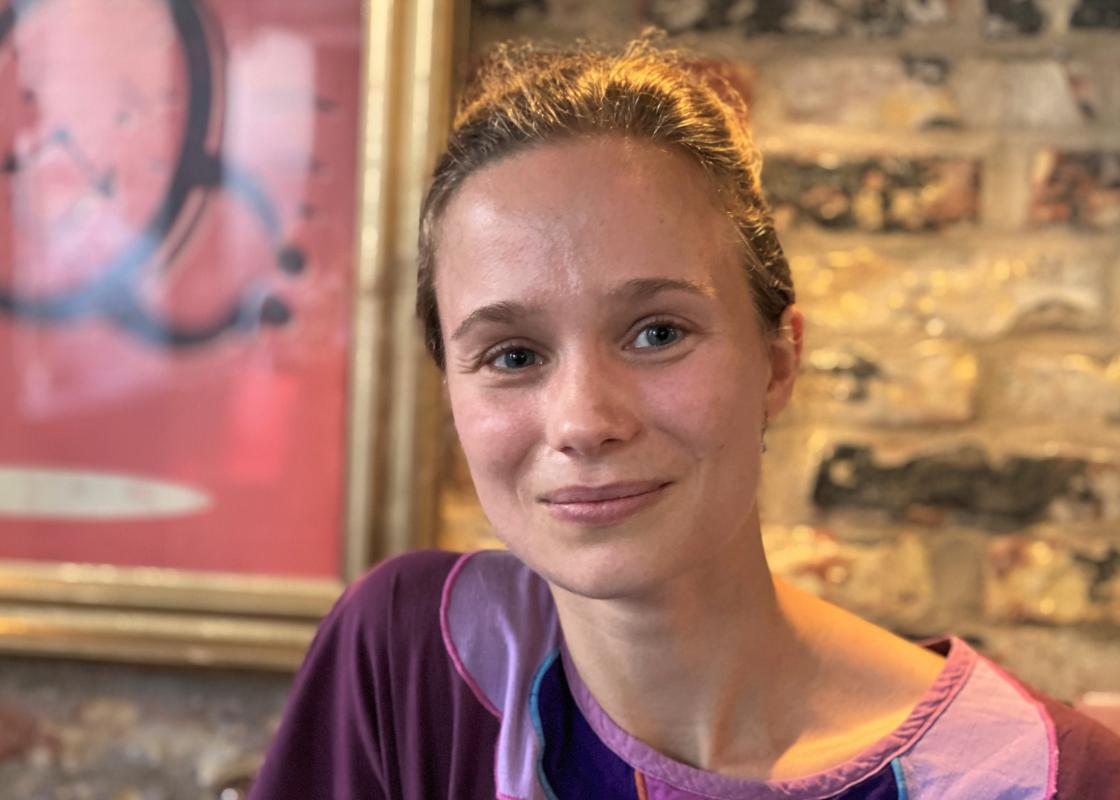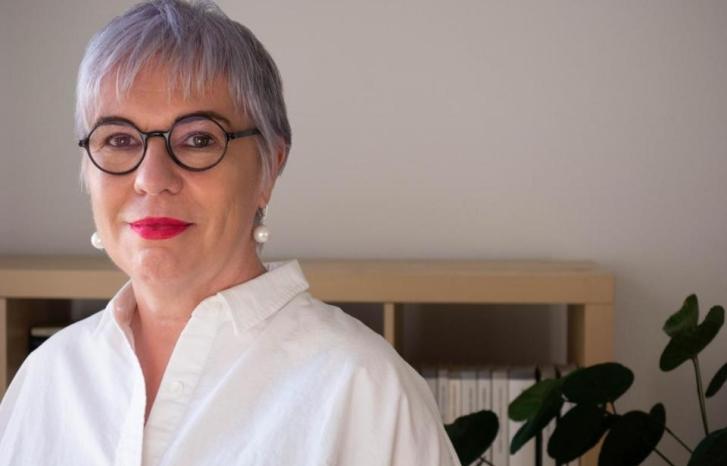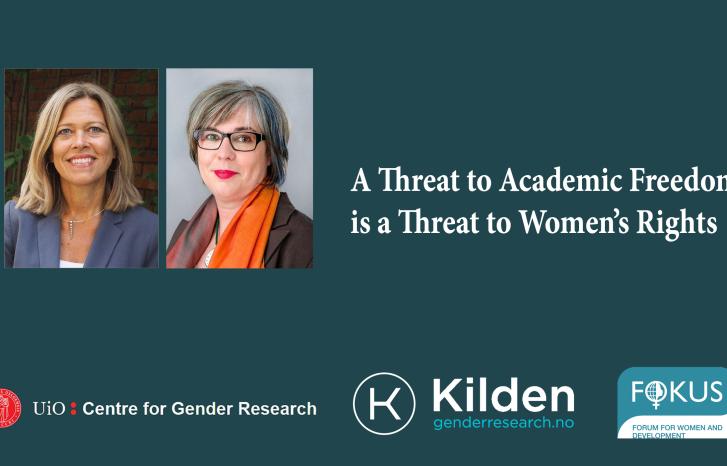“My research was referred to as an example of research that threatens scientific integrity,” she says.
Uldbjerg is a gender researcher at the Department for the Study of Culture at the University of Southern Denmark.
This dates back to 2021, when a member representing the right liberalist party Liberal Alliance (LA) proposed a motion in the Danish Parliament, Folketinget. The Danish research and higher education journal Forskerforum writes that the motion, which has now been passed, instructs Danish university rectors to ensure that politics are not dressed up as science and that it is not possible to systematically avoid legitimate academic critique.
The Folketing's decision sparked an intense debate on freedom of expression in academia, as well as massive protests from Danish researchers.
“The LA politicians used an article I wrote on digital violence and sexual assault as an example of leftist activism in research,” she says.
“I still don't understand why they claimed it was a political article. There is broad consensus across all political parties in Denmark that digital violence and sexual assault are issues that must be addressed.”
Kilden News Magazine looks into academic freedom through interviews with gender researchers. Signe Uldbjerg is a postdoctoral fellow at The South Danish University. She delievered her degree on Rewriting Victimhood Stories of digital sexual assault at The University of Aarhus last year.
Wanted to help rape victims
Uldbjerg’s own research is, however, rooted in activism.
“I used to volunteer at a centre for rape victims, so my research is motivated by a desire to help women who have experienced violence and harassment,” she says.
This February, she submitted her doctoral dissertation on young women who have experienced online violence and sexual assault. It was a qualitative study in which she followed five young women over a five-year period.
“The participants in my study all had experience of digital sexual assault or violence, and they took on the role of co-researchers in the project,” she describes.
The youngest of them was 16 when the project started, and the oldest was 24 when it concluded. Some of the women had taken photos of themselves that had been shared online, while others were filmed during sexual abuse or photographed without knowing about it.
“The dissertation is largely about how the women dealt with the shame of victimhood,” Uldbjerg says.
“Such as what they could do themselves to deal with difficult feelings resulting from the abuse. This changed the women from being passive victims to learning to deal with the pain and take their lives back.”
Activism could benefit research
Uldbjerg says that gender and immigration research in particular have been accused by Danish politicians of being overly politicised and activist. Still, she does not consider it a problem that researchers are also activists.
“I find the criticism unreasonable, particularly for gender research, a field that grew out of activism.”
“Everyone who engages in gender research works within a tradition that originated in politics, but that doesn’t necessarily mean that their research is political. Obviously, it’s important to distinguish between statements you make as a private individual and statements you make in your role as a researcher and on behalf of the institutions where you work,” she says.
Uldbjerg considers research rooted in activism a positive thing because it is based on experience. She refers to Danish-Swedish activist Emma Holten as an example. Holten helped to put digital sexual assault on the political agenda in Denmark by talking about her own experience.
“Holten had nude images of her stolen and spread online, but she chose to be open with the media about her experience,” says Uldbjerg.
“The ensuing debate raised politicians’ awareness of the issue, which led to research being encouraged and funding made available.”
"Since the Folketing passed this motion, I’m afraid that many Danish researchers will hesitate to take part in public debates.”
Support from colleagues
Uldbjerg considers it a good thing that researchers take part in public debate in general, although she believes that freedom of expression in academia has suffered a major setback in Denmark.
“Researchers can help to educate the public, expose false news and in this way strengthen democracy,” she says.
“Democracy depends on voters knowing what it is they’re actually voting for. But since the Folketing passed this motion, I’m afraid that many Danish researchers will hesitate to take part in public debates.”
Uldbjerg herself has faced a lot of harassment following the Folketing debate.
“It was unpleasant, but I didn't feel overwhelmed by it. But then again, I’m used to working in a controversial field. I’ve received much harsher criticism in my role as an activist than as a researcher,” she says.
“It also helped that my institution supported me. I received a lot of support from the university as well as from my trade union and other colleagues who were also criticised.”
Uldbjerg’s own experience of giving interviews about her research has mostly been positive.
“When my article was made an example of for political purposes, I found that few people had bothered to read it. Most of the messages I received were based solely on the title and introduction,” she says.
“But I found the journalists who wrote about the case to be attentive and sincerely interested in communicating my points of view.”
Research concerns us all
It is important that researchers disseminate their research in such a way that it can benefit everyone, according to Uldbjerg. She sees a great need for public education in the field of gender research.
“Our research concerns everyone’s day-to-day lives, which makes it particularly important that gender researchers take part in public debate. There are many misunderstandings and misconceptions about gender that gender researchers can help to put right.”
Uldbjerg also considers it important that research manage to be ahead of developments in society.
“When the time comes to find political solutions to challenges facing society, it’s important that relevant research is already available. That will allow discussions to be based on knowledge,” she says.
“The political agenda is changeable and unpredictable, which makes continuous research on people’s everyday lives important.”
Controversial research most at risk
The findings of Marte Mangset et al. regarding which researchers are most at risk of harassment also reflect the situation in Denmark.
“Research in the fields of gender, immigration and sexual violence is particularly at risk because it’s so controversial,” says Uldbjerg.
“The same is true of research on environmental issues and consequences of the coronavirus pandemic.”
Uldbjerg believes that researchers should be trained to disseminate their research through the media.
“The universities should provide better information and preferably also train their researchers in how to handle the media,” she says.
“It's important for researchers to take control when it comes to how we want our research to be presented to ensure that it's disseminated in a manner we are comfortable with.”
Many journalists want researchers’ perspectives on topical political issues. Researchers should be willing to contribute, Uldbjerg believes.
She nonetheless believes that gender researchers are criticised more than other researchers.
“Gender researchers are very hesitant to disseminate their research. They’re afraid of being criticised and judged in public debates and of being harassed.”
Uldbjerg herself is very cautious when it comes to disseminating her research.
“I worry that my results will be used against me and to undermine gender research in general,” she says.
“Also, I have a dual responsibility. I have a responsibility not just for my own career, but also in relation to the women I have done research on and with. I think this applies to everyone who conducts research on vulnerable groups.”
In Uldbjerg’s opinion, this is not necessarily a question of lacking academic freedom.
“For me, it’s first and foremost a question of protecting my sources.”
We need criticism
Danish gender researchers are good at supporting each other, but also at providing constructive criticism, according to Uldbjerg. In her opinion, the harshest criticism against gender researchers comes from politicians and people outside academia.
“I find that gender researchers are good at giving each other constructive criticism that can help to develop the discipline,” she says.
“But criticism from the general public can also be important. Researchers can have blinds spots just like other people, and there may be perspectives we haven't thought about. It’s worse when criticism is unreasonable or personal, for example when you're criticised for being a woman.”
Denmark has no dedicated centres or institutions for gender research, and there are no professorships or research fellowships in the field.
“If you want a degree in gender research, you have to go to Sweden or Norway,” says Uldbjerg.
“There are many temporary positions, and competition for the permanent positions is fierce. But this is the situation in all of the humanities and is not particular to gender research.”
This article was first published in Norwegian, and was translated by Allegro language services.



